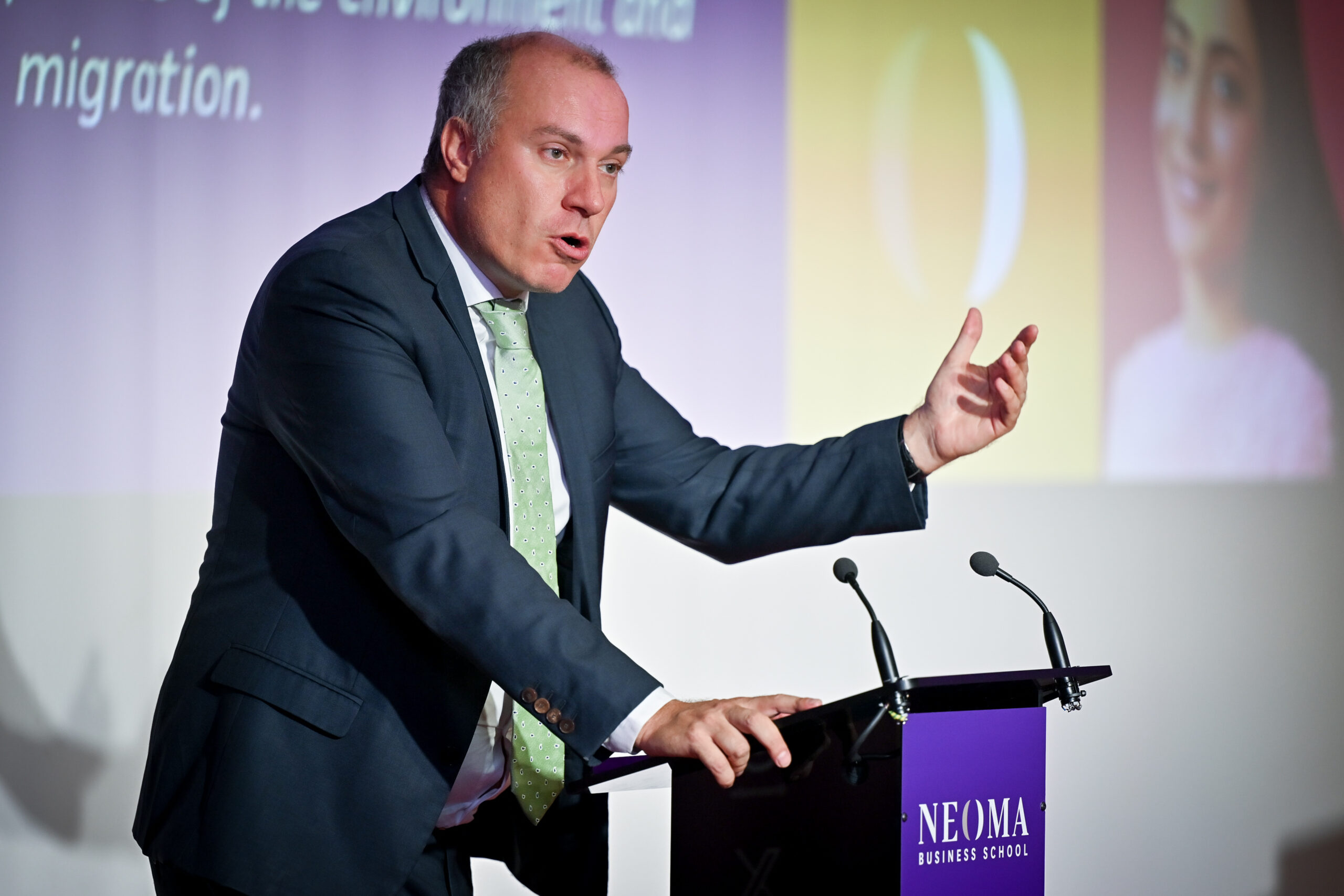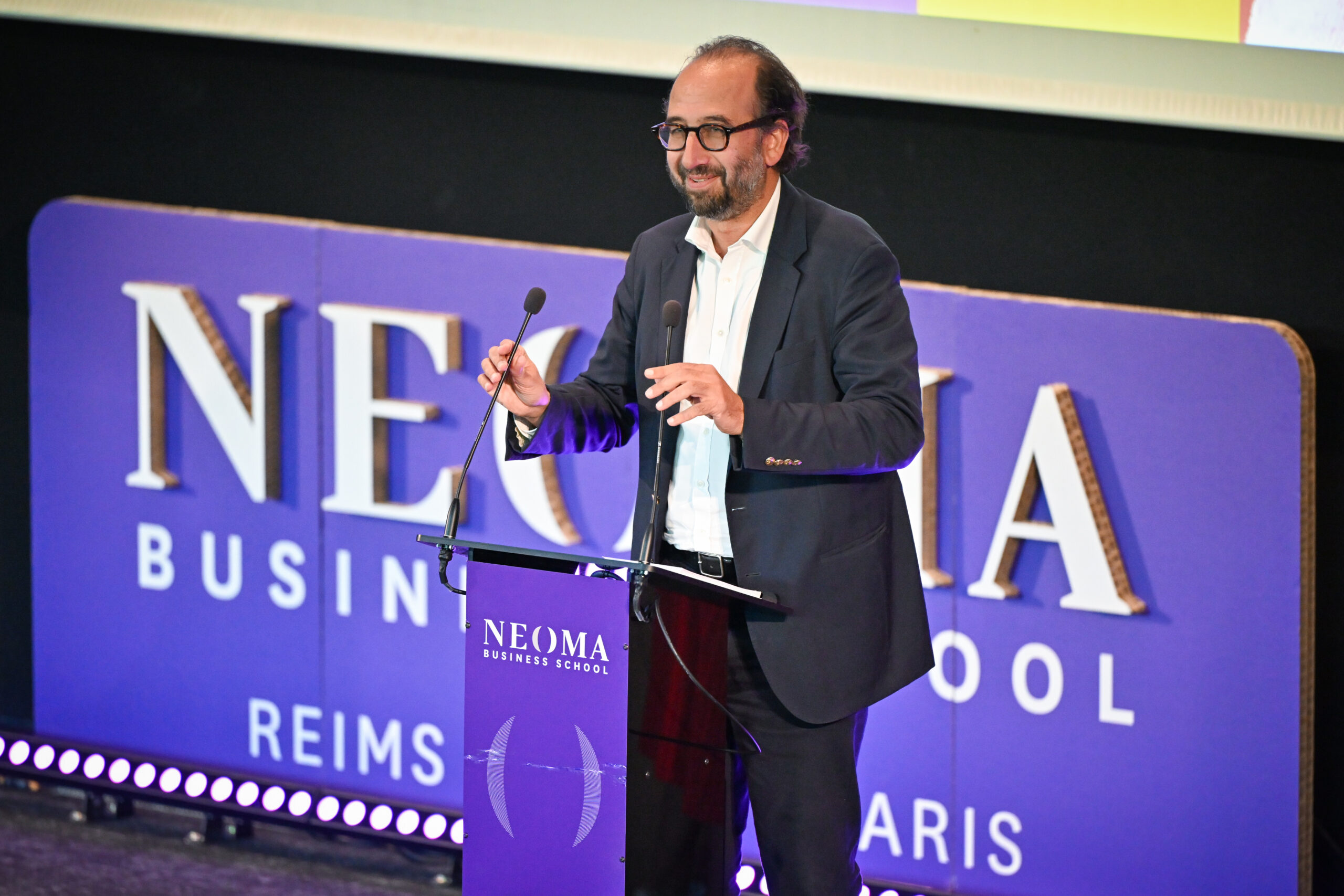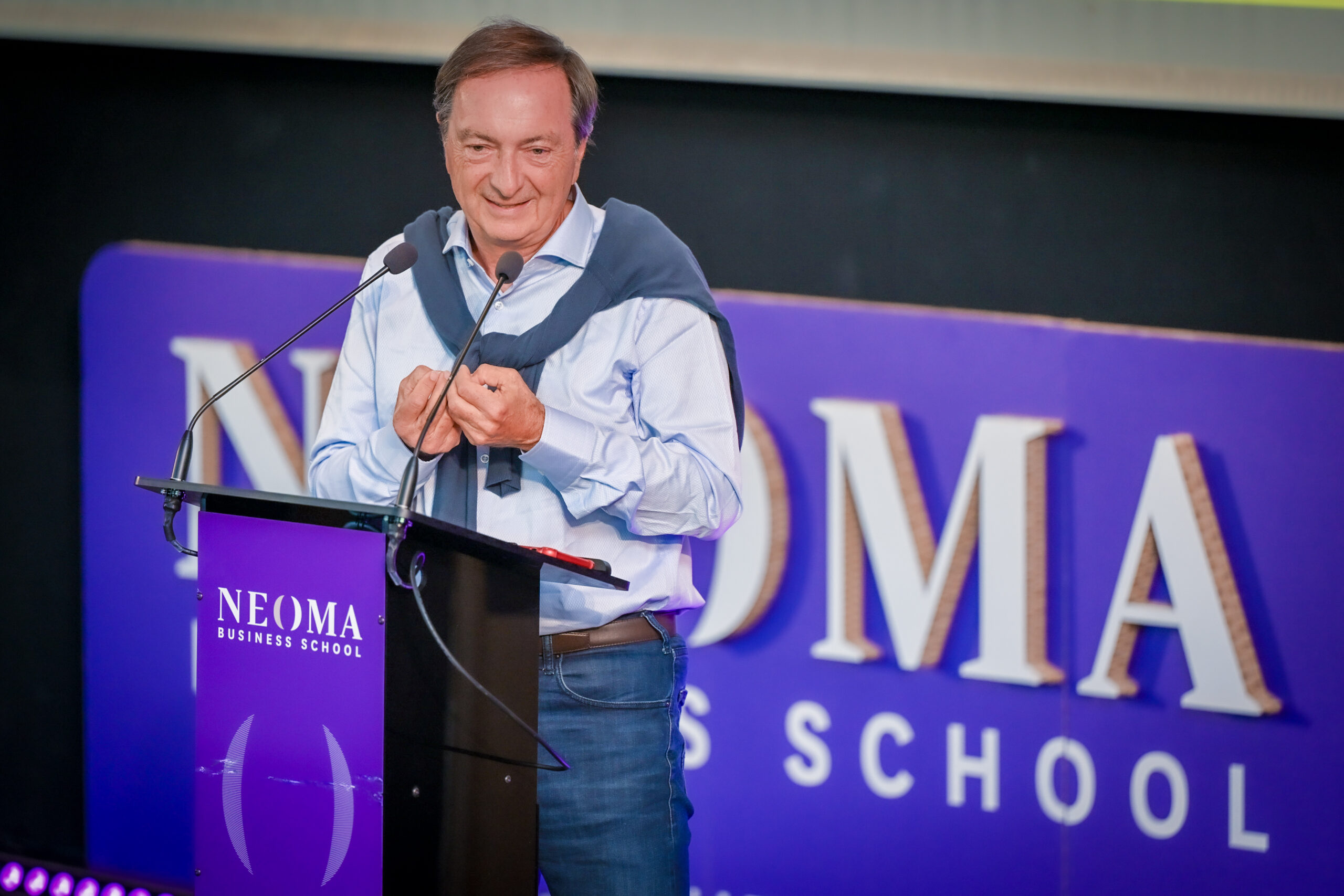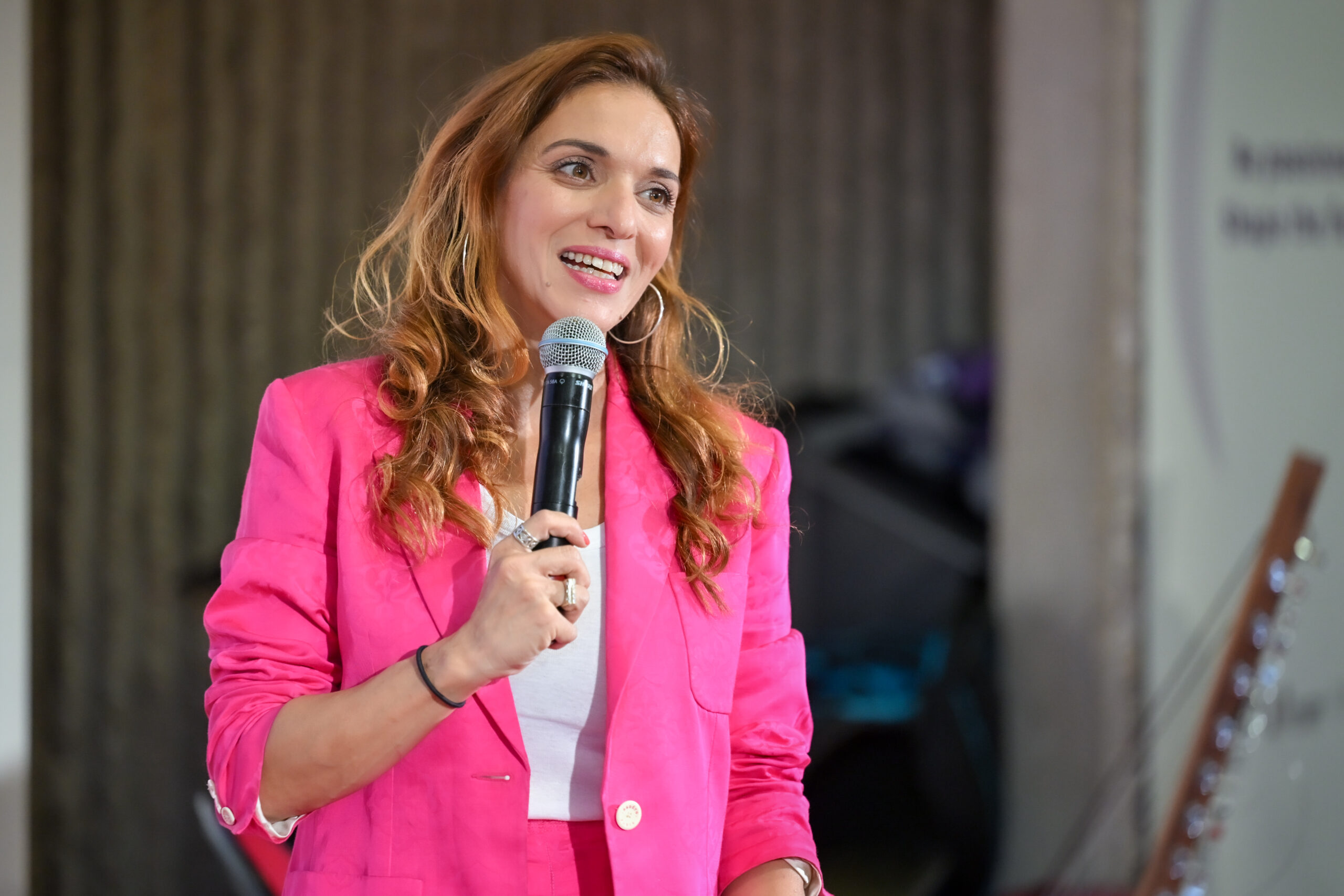MiM: 5 COMMENTS MARKING THE START OF THE 2024 ACADEMIC YEAR
Published on 09/17/2024
Thematics :
MiM: 5 COMMENTS MARKING THE START OF THE 2024 ACADEMIC YEAR
Published on 09/17/2024
The start of the school year for first-year students of the Master in Management Programme is always an intense time at NEOMA. The school knows how to welcome them with “Start Now” days that are full of activities. These days start with welcoming remarks and inaugural lectures. Here are a few highlights of these talks on our campuses.
10 a.m., Delphine Manceau, dean of NEOMA, addressed the first-year MiM students to welcome them to the school.
“The first day of school is a magical day. We are going to support you while we watch you grow and change. Four years from now, at the graduation ceremony, it will be impressive to see how you’ve changed. And it’s certainly true that you are entering school at a particular time.
“In fact, we are now in a pivotal moment. Never before has society experienced such upheavals. The main challenge today for companies is how to transform. They have to integrate major climate change and biodiversity decline challenges, anticipate the changes linked to the development of artificial intelligence and adapt the management and operational methods of companies to new ways of working. And for the more visionary of these companies, they need to actively contribute to transforming society itself.
“Through your studies, you will be the privileged observers of these changes. But our ambition at NEOMA is to see that you are not merely observers of these transformations, but become instead active players involved in them”.
10:30 a.m., Monday in Reims, François Gemenne, political scientist, researcher, specialist in the geopolitics of the environment and migration, explained in his inaugural lecture how each person will be a player in the transition.
“Today, I would like to try to explain how you, as a business school student and future economic leader, have the chance to change the course of things and that at some point each decision you make, each initiative you undertake, each choice, each action that you take over the course of your education and later in your professional life will be enormously important. I think that today the most important challenge is to show why and how it makes sense for us to take action.
“To convince everyone of the scientific soundness of decarbonation, for example, people and companies will have to find value in it. The more they see that it’s worthwhile, the more committed they will become. The transition is always presented as a list of constraints that no one wants to submit to. It’s still hard to see the transition as a project. We know the direction that we don’t want to go in. But we have a lot of trouble seeing where we want to go. To move past the constraints to the project, we need to concretely display the advantages of decarbonation. We need to visualise what low-carbon transportation, food, lodging and education will look like. And that obviously is up to you to invent and implement.
“And I truly believe that one of the biggest strengths of business schools in the transition will be the chance to concretely display decarbonation and show why the transition can be a project and not just a constraint. That’s how I believe we will succeed”.
10:30, Tuesday in Rouen, Eric Hazan, senior associate director at McKinsey & Company, took the microphone for an inaugural lecture on the subject of AI.
“We can’t do without artificial intelligence today, but it can be a bit frightening. 70% of jobs can be theoretically automated by 50%, particularly in Europe and the US. Globally, there will be more interesting and better-paid professions. Individually it requires us to adapt and change our professional practices to focus on value and develop new skills. Companies know this and need to reassess employees.
“The question is how to succeed in this transition. This transition cannot be achieved without education and training. To deploy this increase in productivity, we will need to manage the human transition. And we need to deploy this technology in a humanist framework. The first barrier is how the technology is adopted”.
11:30 a.m. Michel-Edouard Leclerc, president of NEOMA and president of the E. Leclerc strategic committee took the stage.
“Education at NEOMA is multidisciplinary. We work with different institutions in France and around the world. We think that it is important to understand the world in its multiple dimensions.
“I recommend that you acquire all this knowledge and meet as many people different from you as possible. Cultural enrichment helps you understand other people’s reasoning. There are no business schools that don’t take into account human relationships. And I also recommend that you keep a child’s spirit”.
2 p.m., Imen Mejri, head of the Master in Management Programme, welcomed the new students.
“Over the next three or four years in the MiM, you are going to change your outlook on the world, discover new horizons, meet new people and learn with different methods.
“You are going to be able to find your own way regardless of the path that you take. To do this, you need a few tips to succeed. I do not claim to have all of them. But, from observing previous classes, I can say that to succeed you should be passionate and open, curious, bold, propose ideas, innovate, respect yourself and others, listen to others, be humble and know how to choose the best people for you”.





